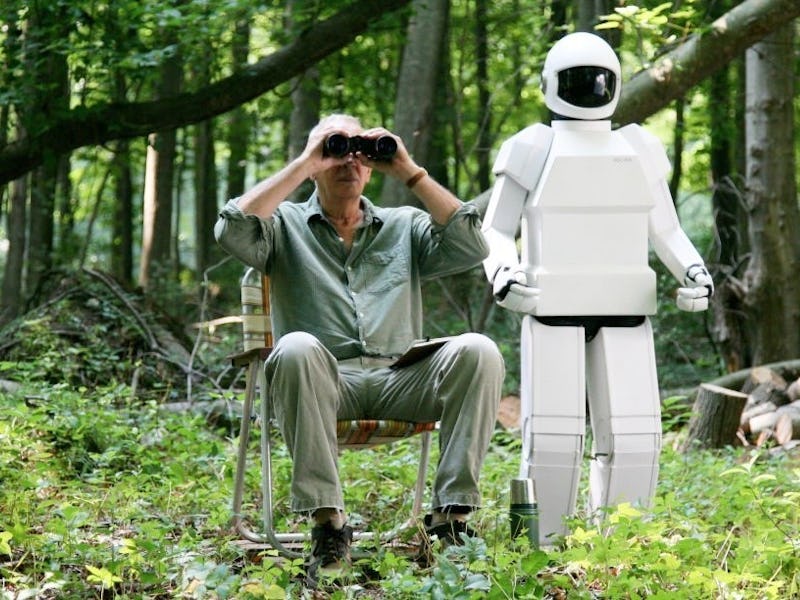Elderly More Likely to Accept Digital Nurses if They've Seen 'Robot and Frank'
A movie may ease them into robot help.

Healthcare spending has ballooned as more Americans enter retirement and slowly make their way into assisted living facilities. Luckily, the decommissioning of the Baby Boomers has coincided with the rise of friendly robot helpers. The assistants aren’t all human. It’s a surprising twist that the generation in most intimate contact with robots is aged, but the applications of technology are often unexpected and culturally disruptive. The 65 and up set, a group of Americans that didn’t grow up investing in tech with real value, now must integrate with our robot underlords. Hollywood, it turns out, can help.
A new report out of Penn State finds that adults who had greater exposure to robots in movies over the years expressed less anxiety about using or interacting with a robot. This is good news for anyone who thought Robot & Frank seemed like a good idea, especially if you took your aging parents to see it with you.
“Increasingly, people are talking about smart homes and health care facilities and the roles robots could play to help the aging process,” said S. Shyam Sundar, a professor of communications, in a statement. “Robots could provide everything from simple reminders — when to take pills, for example — to fetching water and food for people with limited mobility.”
To help improve your parents’ view of robots, it may not even matter which movie you take them to, as any kind of media of exposure to robots is better than none.
Though the study did find that seeing good robots did help build a positive association. “The more sympathetic the participants felt toward the robot—for example, the robot in Wall-E — the more positive they felt toward robots,” said Sundar.
The potential to improve the relationship between our less tech-savvy parents and robots comes right as mechanized minds are already beginning to seep into modern medicine. Advanced artificial intelligence is helping physicians make informed diagnoses, and robots are even taking over the role of pharmacist altogether. And the trend is only accelerating. Nursing homes may soon be equipped with mobile communication bots that roll around to different patients and allow them to video chat with the people on the outside. Doctors are also beginning to use this kind of technology to facilitate face-to-face access to their patients as well.
Like all shifts to mechanical assistance, the rise of robots in the healthcare industry may displace some work currently done by people. But at the rate the industry is growing, there may be plenty of room for robots and humans to work side-by-side. So if you don’t want your parents to miss out on the future of healthcare, maybe surprise them tonight, with a movie you’ve just been dying to see — I, Robot.
Well, maybe not that one.
The 20014 'I, Robot' may feature a mixed message about the future of robots, but adults who had seen it were still more likely to hold favorable views of robot assistance in their own lives.